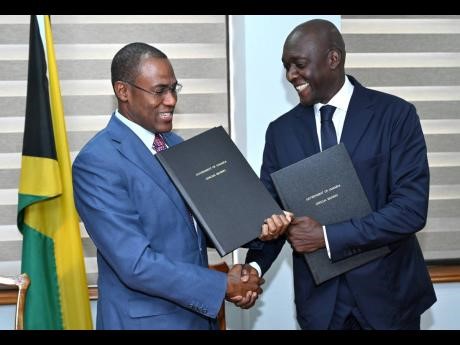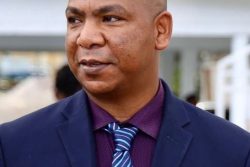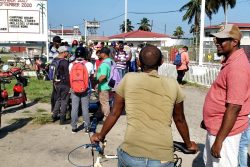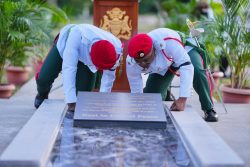Finance Minister Dr Nigel Clarke signed an agreement on behalf of the Jamaican government that could see the completion of as many as 10 major infrastructure projects valued at US$2 billion.
The memorandum of understanding signed with the International Finance Corporation, IFC, the private sector arm of the World Bank, will see the IFC acting as adviser on the portfolio of public-private partnership projects that will include broadband services, water supplies, highways and centres for treatment in nephrology and oncology, among other major infrastructure developments, at least over the next two to five years.
In signing what could be one of his last high-level agreements before he leaves office to take up the position of Deputy Managing Director of the International Monetary Fund on October 31, Minister Clarke said the agreement was made possible because of the country’s stable macroeconomy.
“What we have decided to do is pursue a portfolio of activities at the same time,” Clarke said. “Investors may know that they may not win on a single project, but because we are coming with 10 projects they will have other opportunities. This allows us to attract a broader pool of investors and increases the success rate of each transaction.”
The IFC is the largest global development institution focused on the private sector in developing countries.
IFC Managing Director Makhtar Diop remarked on Clarke’s achievement in stabilising Jamaica’s economy, thereby creating the conditions for the private sector to invest.
“I do believe that the experience that the minister has accumulated in Jamaica will be very useful for countries in the rest of the world, which are in a similar condition as Jamaica,” Diop said, in allusion to Clarke’s upcoming IMF posting.
Stating that economic development required the cooperation of both the private and public sectors, the IFC head noted that “a huge flow of capital was needed from the private sector” to invest in infrastructure such as sanitation which is very expensive.
Dr Clarke said the projects to be undertaken include the widening of the north coast road from two lanes to four, from Seacastles in St James to Mammee Bay in St Ann; the provision of broadband infrastructure; enhancing the storage and distribution of water; and possibly health facilities for oncology and nephrology.
“What we are doing here today is a portfolio of PPPs to be executed over the medium term to lift the standards of living in Jamaica, to attract investment in scale and to leverage the macroeconomic environment in the people’s interest,” Clarke said.
However, the minister indicated that the projects would take some time to become reality as the gestation period for PPPs varied from three to five years depending on their complexity.





